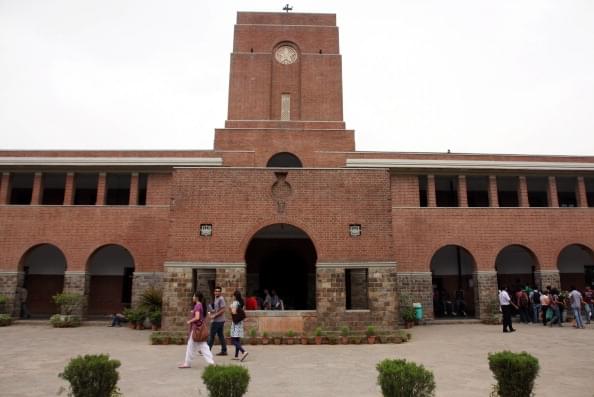Books
India’s Big Role On World Stage Depends On New Political Science Script
Abhinav Verma & Dr. Svenja Falk
Apr 14, 2016, 03:26 PM | Updated 03:26 PM IST
Save & read from anywhere!
Bookmark stories for easy access on any device or the Swarajya app.


-
As India sets her aspirations on the global stage, political scientists have a bigger role to play in the country’s development.
- Most universities focus on teaching political systems, political parties, state activity and international relations, but neglect political sociology.
- India also neglects the important emerging field of political communications, including public opinion, mass media, voter behavior and campaigning.
Vikram Pandit, former CEO of Citigroup observed significant changes in the fundamentals of success: “Economics was the dominating factor over the past two to three decades, but its politics that will be the driving theme for a period of time”. Now, it is acknowledged that governments play a pivotal role through policies which groom talent.
Decision makers in India have started to appreciate the importance of education and long term investments are being made. There is a general awareness that education and research play a critical role in a country’s ability to capitalize on future opportunities. Education determines the quality of a country’s workforce and ultimately sets the stage for innovation, a prerequisite to compete in the global knowledge economy.
In knowledge economies, higher education is becoming more important as a means for wide ranging cross-border relationships in business, academia and politics, as well as for the continuous global flow of people, information, knowledge, technology and financial capital.
But what ‘education’ is still needs to be discussed. Do you know what Henry Kissinger, Ban Ki-moon, Richard Holbrooke, Ólafur Ragnar Grímsson, Heinz Fischer, Salil Shetty and Madeleine Albright all have in common? All of them have a degree in political science and many of them taught political science at renowned institutions for years, before or after their political careers.
In many countries, many political scientists have played important public roles: as elected officials, senior public officials, policy advisors on the national and/or international level, leaders in non-profit organizations, and in social movements. In almost every country we find political scientists as decision makers, agents, advisors, commentators or engaged citizens.
Political science drives reforms agenda and is essential for a better future for communities. Political science has a public role. As India sets her aspirations on the global stage, political scientists have a bigger role to play in the country, to foster social and political reform, shed light on societal problems and come up with pragmatic solutions for them, and help define relationships among stakeholders.
We have attempted to understand how academic institutions in India prepare political science graduates for participation in various aspects of public life. On examining the curricula and professorships of 86 Indian universities offering political science, representing 25 states and union territories, it was found that most universities focus on the areas of political systems, political parties, state activity and international relations. Political sociology, which can be characterized as the art of understanding motives and behaviors of all stakeholders in society, is underrepresented.
We also looked at the newer developing areas within the emerging field of political communications. These areas include public opinion, mass media, voter behavior and campaigning. This relatively new field has broadly proven its relevance, given the recent movements in the Arab world. India has witnessed several key decisions being motivated by public opinion and voter behavior. However, these areas are not being sufficiently taught in Indian universities.
India has far reaching and ambitious goals in education, and quite rightly so. The future of India will be determined by the way it manages education and skill-building. If successful, India – which makes up 20 percent of the world’s population – can play a significant role in shaping and building the global economy. The country will benefit from a large, educated and productively employed workforce, and will need to focus significant resources on solving serious economic and social problems.
Political scientists can play an important role in making this happen. While increasing the scale and scope of education in the country, we have the opportunity to take a fresh look at our education.
Abhinav Verma works with Accenture Strategy in Mumbai. He holds a Masters degree from the Tata Institute of Social Sciences, Mumbai. His interest lies in the area of political communication and he has attended a training by the Hertie School of Governance, Berlin on the topic Dr. Svenja Falk works since 1999 at Accenture. She studied Political Sciences, Sociology and Philosophy at Justus-Liebig Universität Gießen and University of Southern California (Los Angeles). Academically, she is concerned with political consulting and media politics.





